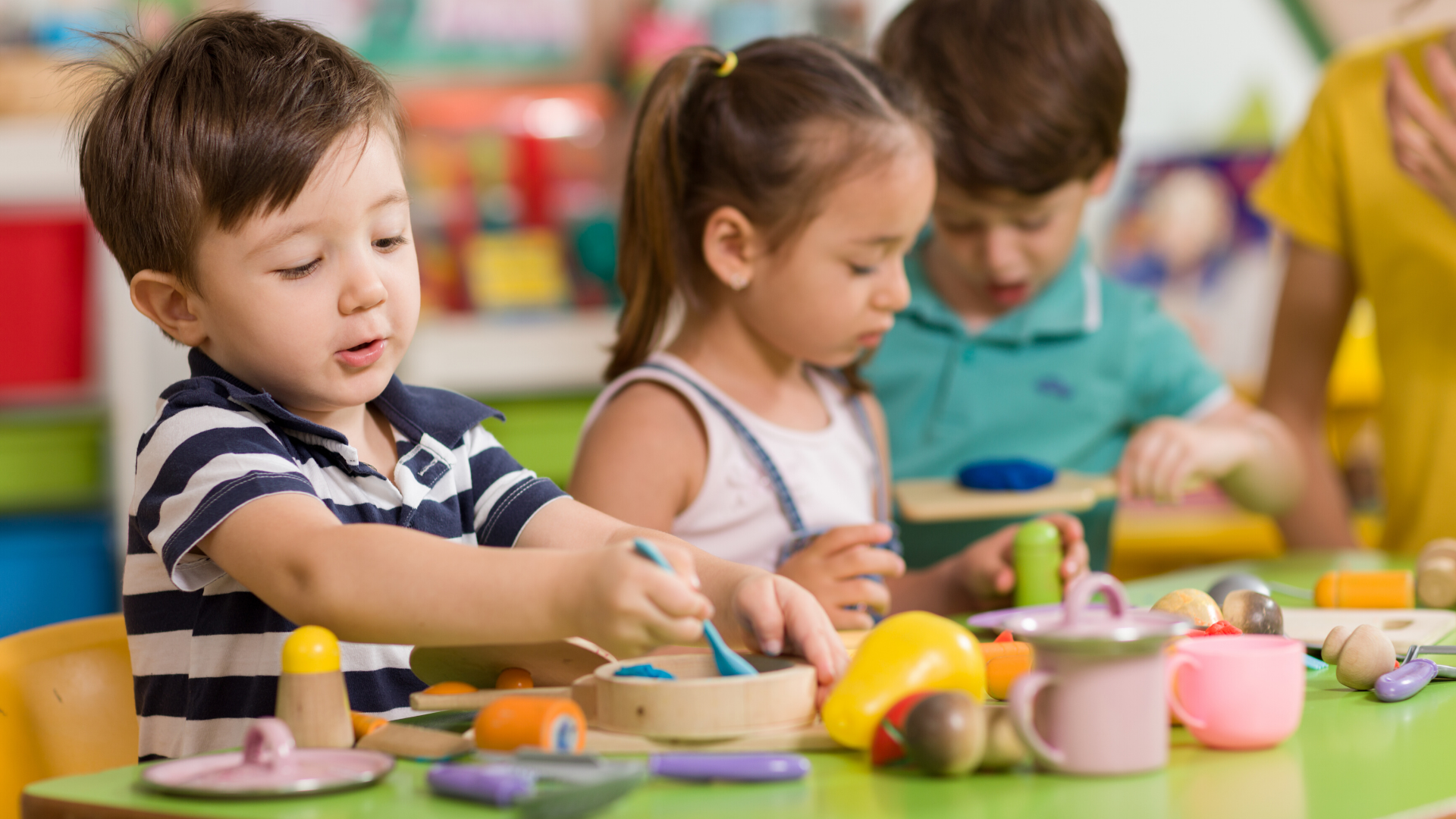Childcare 2020: How important is the element of play in a classroom?
Play enables children to build a social, moral, and academic compass where they are using creativity and imagination to unlock certain skills. In an early childhood learning environment, every experience and lesson should be centred on the concept of play to help develop the whole child.
How does play improve a child socially?
The way a child plays is very indicative of their social progress. Generally speaking, a child goes through six stages of social play.
1. Unoccupied Play (Birth-3 Months)
Unoccupied play is the stage where a baby explores their surroundings through gentle movements like wiggling arms and toes.
2. Solitary Play (Birth-2 Years)
Children during this stage play in isolation or alone. They prefer not to engage with others as they do not know how to socially process and show the skills of empathy, compassion and sharing just yet.
3. Spectator/Onlooker Behaviour (2 Years)
A child maintains playing on their own but they observe other children playing and their play-based learning is based on carefully note their interactions.
4. Parallel Play (2+ Years)
This stage is when a child plays next to another child but they do not converse or interact, however they are aware of one another.
5. Associate Play (3-4 Years)
A child will play among others in a group but may not be necessarily interacting with them directly. For example, they might all be playing in the sandpit but not work on making one castle between the group.
6. Cooperative Play (4+ years)
This is the final stage of play and it is when a child is interacting with other children and this type of play-based learning involves a genuine interest in the other person about what they are doing.
How does play improve a child academically?
Children are active seekers of meaning so they can better understand their place in this world. Play is an effective method to stimulate their brain so that they can understand the context of the learning. Through play, children can develop those much-needed skills later on in life critical thinking, communication and creativity.

by Dean Comeau (Marketing Team Lead)
-
First published: 09 March 2020
Written by: Dean Comeau
